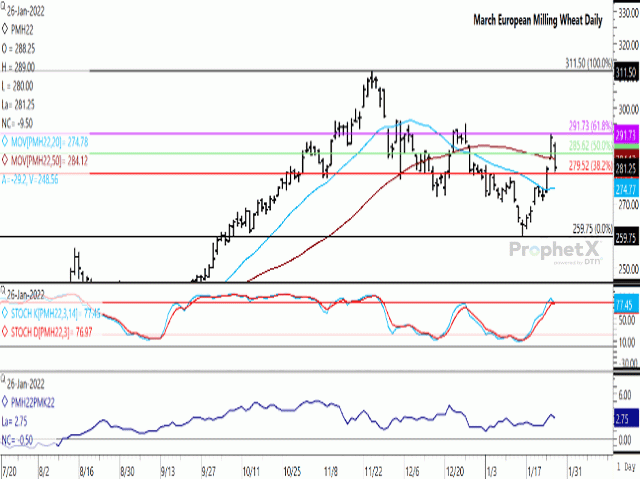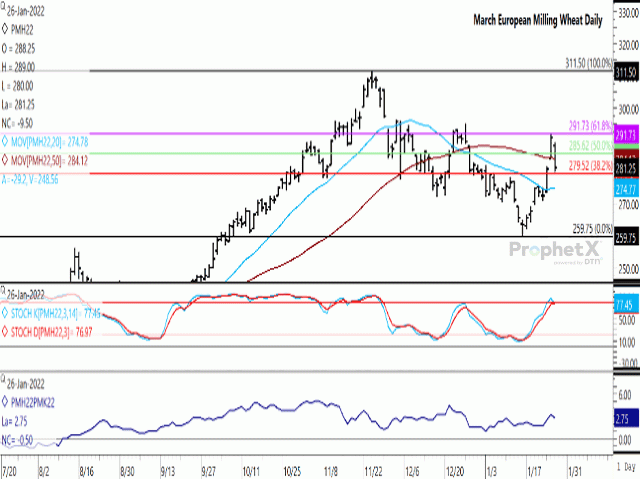Canada Markets
The Wheat Markets' Take on War
Wednesday's headlines continue to point to the high degree of uncertainty surrounding the Russia-Ukraine conflict, which involves numerous other countries. Wednesday headlines point to the U.S. taking action to have sanctions and export controls ready to impose on Russia in the event of an invasion. At the same time, another headline points to Russia's threat of retaliation should the western countries fail to implement Russia's demands involving NATO. The U.S. has delivered a written response to Russia's requests, indicating only that the demands are unreasonable.
To-date, Canada's involvement is a $120 million loan to Ukraine, while the computer networks at Global Affairs Canada faced a mysterious outage over the past weekend. A radio interview pointed to a Ukraine diplomat stating that what is needed is: 1) defensive weapons; 2) defensive weapons; and 3) defensive weapons.
What is interesting is the Wednesday reaction in the wheat markets. At the close, the three U.S. markets are down from 18 3/4 to 31 cents (March contracts), although did bounce from session lows.
Even closer to the action is the European milling wheat market, which could face a surge in export activity should shipments be affected due to a Russian invasion. This week's European Union export data shows cumulative exports up 3.9% over the same period in 2020-21, while European sources indicate this volume is understated as data from France is not up to date. There are already reports that buyers of certain commodities may be shifting some demand away from the Black Sea region, although this cannot be established in the wheat market at present.
P[L1] D[0x0] M[300x250] OOP[F] ADUNIT[] T[]
The attached chart shows Jan. 26 trade in European milling wheat for March delivery taking back 52% of the gains realized in the first two days of this week, despite euro weakness against the U.S. dollar. Tuesday's move saw a bullish gap in trade formed, with the session's close above the contract's 50-day moving average, while facing resistance at the 61.8% retracement of the move from the November high to January low, calculated at EUR 291.73/mt. The move on Wednesday resulted in a close below the contract's 50-day moving average, while also breaching support by filling the gap formed in trade earlier in the week.
The first study shows the stochastic momentum indicators showing signs of rolling over, while failing to reach the overbought region of the chart. The lower study shows the March/May future inverse weakening slightly to EUR 2.75/mt, which has traded at a bullish inverse since Aug. 10.
It is interesting to note that while profit-taking weighed on wheat Wednesday, crude oil has reached a fresh seven-year high, a market also affected by the Russia-Ukraine turmoil.
The current conflict may or may not lead to war, although volatility is something that can be counted on.
**
DTN 360 Poll
This week's poll asks if you think canola's fundamentals will prevail, and if prices will recover from the recent sell-off. Please feel free to share your thoughts on this poll, located at the lower right side of your DTN Canada Home Page.
Cliff Jamieson can be reached at cliff.jamieson@dtn.com
Follow him on Twitter @Cliff Jamieson
(c) Copyright 2022 DTN, LLC. All rights reserved.






Comments
To comment, please Log In or Join our Community .